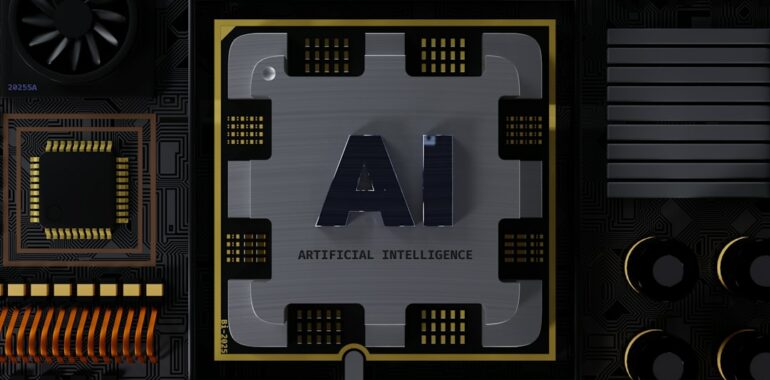AI Agents Explained: Enhancing Workflow Automation, Security, and Code Quality

Discover how AI agents are transforming workflow automation, enhancing software security, and elevating code quality in modern enterprises.
Introduction
In today’s fast-paced digital landscape, businesses are constantly seeking ways to optimize operations, bolster security, and ensure the highest quality in software development. AI Workflow Automation has emerged as a game-changer, with AI agents at the forefront of this revolution. These intelligent agents not only streamline processes but also enhance security measures and improve code quality, offering a multifaceted solution for modern enterprises.
What are AI Agents?
AI agents are autonomous software tools designed to perform tasks, make decisions, and interact intelligently with their environment. Unlike traditional AI models that require continuous human input, AI agents can operate independently, learning and adapting based on real-time feedback and evolving conditions. Their ability to initiate actions, set and pursue goals, and adjust strategies makes them invaluable in complex, dynamic settings.
Enhancing Workflow Automation with AI Agents
AI Workflow Automation leverages the capabilities of AI agents to streamline and optimize various business processes. By automating repetitive and time-consuming tasks, AI agents free up human resources to focus on more strategic initiatives. For instance, in software development, AI agents can manage code reviews, handle automated testing, and oversee continuous integration and deployment (CI/CD) pipelines. This not only accelerates the development cycle but also ensures consistency and reliability in output.
Benefits of AI Workflow Automation
- Increased Efficiency: AI agents can perform tasks faster and with fewer errors than their manual counterparts.
- Cost Reduction: Automating workflows reduces the need for extensive human intervention, lowering operational costs.
- Scalability: AI agents can easily scale operations without significant additional investments, catering to growing business needs.
Boosting Software Security through AI Agents
Security is paramount in software development, and AI agents play a crucial role in fortifying defenses against potential threats. These agents actively monitor systems, detect vulnerabilities, and respond to security incidents in real-time. By integrating with existing security tools, AI agents provide a proactive approach to safeguarding software applications.
Key Security Enhancements
- Vulnerability Detection: AI agents continuously scan codebases to identify and remediate security flaws before they can be exploited.
- Threat Mitigation: In the event of a security breach, AI agents can swiftly execute predefined protocols to contain and neutralize threats.
- Compliance Assurance: AI agents help ensure that software adheres to industry standards and regulatory requirements, minimizing the risk of non-compliance penalties.
Elevating Code Quality with AI Agents
High-quality code is the backbone of reliable software applications. AI agents contribute significantly to maintaining and enhancing code quality through various automated processes. From intelligent code reviews to automated debugging and optimization, these agents ensure that software meets the highest standards of functionality and performance.
Enhancements in Code Quality
- Automated Code Reviews: AI agents analyze code for errors, inefficiencies, and adherence to best practices, providing actionable feedback to developers.
- Debugging Assistance: By identifying and fixing bugs autonomously, AI agents reduce the time developers spend troubleshooting.
- Performance Optimization: AI agents recommend and implement improvements to enhance the efficiency and speed of software applications.
Deploying and Managing AI Agents: Best Practices
Implementing AI agents requires careful planning and management to maximize their benefits while mitigating potential risks. Here are some best practices for deploying and managing AI agents effectively:
Maintain Control and Compliance
Establish transparent and ethical guidelines governing AI agent operations. Ensuring compliance with industry regulations and standards is essential for maintaining trust and integrity in AI-driven processes.
Ensure Data Privacy and Security
Protecting the data handled by AI agents is critical, especially in sensitive environments. Implement robust encryption and access controls to safeguard both the data and the AI models from unauthorized access or tampering.
Keep Humans in the Loop
While AI agents can operate autonomously, human oversight remains crucial. Regularly monitor and evaluate AI agents’ performance to ensure alignment with organizational goals and to make necessary adjustments based on human feedback.
Ensure Transparency and Explainability
AI agents should operate in a transparent manner, with their decision-making processes understandable to human stakeholders. This transparency fosters trust and facilitates better integration with existing workflows.
Focus on Scalability and Flexibility
Design AI solutions that can scale and adapt to evolving business needs. Flexibility ensures that AI agents remain effective as organizational demands change and new tools or workflows are introduced.
Keep Ethical Considerations at the Forefront
Ethics play a vital role in AI deployment. Develop and adhere to ethical guidelines that promote fairness, prevent bias, and respect human rights, ensuring that AI agents contribute positively to society.
The Future of AI Agents in Enterprises
As AI and machine learning technologies continue to advance, the role of AI agents in enterprises is set to expand further. Future trends may include more sophisticated decision-making capabilities, deeper integration with a wider range of business tools, and enhanced collaboration between AI agents and human employees. These developments will drive even greater efficiencies, security enhancements, and quality improvements across various industries.
Emerging Trends
- Advanced Decision-Making: AI agents will increasingly utilize complex algorithms to make more nuanced and strategic decisions.
- Seamless Integration: Deeper integration with enterprise software and tools will enable AI agents to operate more cohesively within existing workflows.
- Enhanced Collaboration: Improved interfaces and communication protocols will facilitate better collaboration between AI agents and human teams, leading to more innovative and effective outcomes.
Conclusion
AI agents are revolutionizing AI Workflow Automation, offering unparalleled enhancements in efficiency, security, and code quality. By automating complex tasks and providing intelligent, adaptive solutions, AI agents empower organizations to achieve higher levels of productivity and reliability. As technology continues to evolve, the integration of AI agents will become increasingly integral to successful and sustainable business operations.
Ready to transform your workflows with cutting-edge AI agents? Explore CAMEL-AI today!




